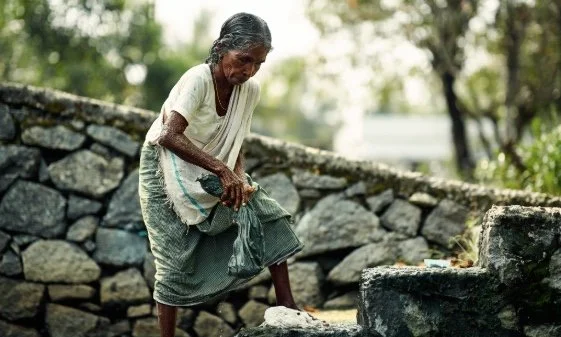Kerala Set to Declare End of Extreme Poverty, Experts Question the Basis
Open Letter Seeks Evidence Behind Nov. 1 Poverty-Free State Claim
November 1, 2025
As Kerala Chief Minister Pinarayi Vijayan prepares to formally declare the state the first in India to be entirely free from extreme poverty on November 1, a group of economists, statisticians and public intellectuals have posed a basic and unavoidable question: how was this conclusion reached?
In an open letter, the economists and scholars, including M.A. Oommen, K.P. Kannan, Sunil Mani, J. Devika, John Kurien and V. Raman Kutty, have raised technical, empirical and policy questions about the basis of the government’s claim, according to The Times of India.
The government’s claim rests on a state-led programme launched in July 2021, which reportedly identified and lifted 64,006 families out of extreme poverty. These families were selected based on indicators such as food access, housing security, minimum income and health status.
The state asserts that this achievement would make Kerala the first Indian state to meet the Sustainable Development Goals of eliminating poverty and hunger. However, the signatories of the letter point out that this narrative lacks methodological clarity, basic accountability and statistical coherence.
The most immediate inconsistency arises when this figure is placed alongside existing data. Under the National Food Security Act, nearly 592,000 (5.92 lakh) households in Kerala hold yellow ration cards under the Antyodaya Anna Yojana (AAY), which targets the poorest families and guarantees them free rice and wheat. If the number of extremely poor families has fallen to 64,006, it raises several questions.
Have the remaining AAY cardholders escaped extreme poverty too? If so, has the government updated the central list, and will this reclassification affect these families’ entitlement to subsidised grain? Or is the state using a completely different definition of poverty from that used in central schemes?
This confusion deepens when compared with previous state-level initiatives.
The Ashraya scheme, launched in 2002 and celebrated for its comprehensive support to the destitute, had identified over 118,000 (1.18 lakh) families in need. Ashraya’s own definition of destitution included inability to eat two meals a day, lack of cooking capacity, or living with serious health burdens. If the new poverty eradication programme continues the Ashraya framework, then the reduction in numbers demands explanation. Has the reduction been achieved through real, sustained interventions or through a redefinition of eligibility?
The absence of such information creates the appearance of policy theatre rather than policy transformation.
The signatories also question the treatment of particularly vulnerable populations.
According to the 2011 Census, Kerala is home to 116,000 (1.16 lakh) tribal families, but the government has identified only 6,400 as extremely poor. If this 5.5 percent figure of 6,400 is accurate, it suggests a dramatic improvement in tribal living conditions. But what are the grounds for this claim? Were these families reclassified as better-off based on real economic shifts, or were they dropped from the list based on arbitrary thresholds?
If public claims are made about eliminating extreme poverty, they must account for the most vulnerable sections of the population, including tribal communities, informal workers and persons with disabilities.
The signatories are demanding to see the study, the criteria, the process of identification and the institutional involvement behind this exercise. They are asking whether Kerala’s State Planning Board or Statistical Department were consulted, and whether the data collection involved professional statistical oversight. Without such backing, the figure of 64,006 risks becoming a hollow symbol rather than a credible measure of progress.
Many of the letter’s signatories have worked with or within the state on progressive welfare schemes. They acknowledge Kerala’s past record in pushing for universal health, decentralised governance and social housing. They argue that the claim of eradicating extreme poverty should emerge from a transparent, verifiable process, not from an announcement made on Kerala Piravi Day for symbolic resonance.
Further, if the new claim is accepted uncritically, it may set a precedent for other states to make similar declarations without scrutiny. The larger point is about the credibility of public data.
In a country where poverty surveys have been delayed and socio-economic datasets are often contested, a state-level announcement of poverty eradication must be backed by rigorous evidence. This is especially true in Kerala, which has long claimed a leadership role in development planning. If the claim is valid, the government should welcome questions.
You have just read a News Briefing by Newsreel Asia, written to cut through the noise and present a single story for the day that matters to you. Certain briefings, based on media reports, seek to keep readers informed about events across India, others offer a perspective rooted in humanitarian concerns and some provide our own exclusive reporting. We encourage you to read the News Briefing each day. Our objective is to help you become not just an informed citizen, but an engaged and responsible one.

